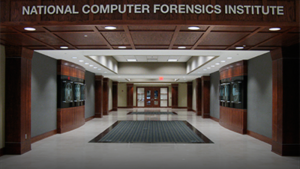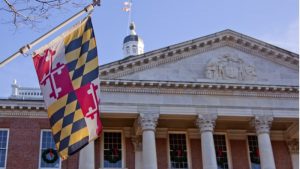Sens. Chuck Grassley, R-Iowa., and Dianne Feinstein, D-Calif., have introduced new legislation that would reauthorize the National Computer Forensics Institute (NCFI), which provides cybercrime training to state and local law enforcement agencies.
The Federal Communications Commission (FCC) on July 27 committed an additional $77 million in two new funding rounds through the Emergency Connectivity Program (ECF) that aims to help close the “homework gap” for students across the United States.
The number of ransomware attacks on both K-12 and higher education institutions increased in 2021, according to a new report from Sophos, a global cybersecurity leader.
While the Biden administration is pushing hard to increase broadband service access across the country, the White House needs to come up with a national strategy to do so on tribal lands where broadband access has traditionally lagged, the Government Accountability Office (GAO) said in a new report.
Maryland Gov. Larry Hogan has announced more than $127.6 million in broadband grants for local jurisdictions, Internet Service Providers, and community organizations, as well as education-specific grants that will expand infrastructure and provide wireless devices and equipment to Maryland’s K-12 students.
The Federal Communications Commission (FCC) announced over $266 million in two new funding rounds through the Emergency Connectivity Funding (ECF) program to help close the “homework gap” for students that don’t have access to reliable broadband service and devices.
The Department of Energy (DoE) said on July 6 that it will prioritize awards under a $2.3 billion power grid modernization grant funding program to include systems at risk of disruptive events including cyber attacks.
As state and local governments look to modernize aging IT infrastructure and offer more self-service to residents in this digital age, it’s becoming clear that successful digital transformations rely on a solid IT Service Management (ITSM) foundation – a foundation that will form the backbone for a broader use of service management best practices. The combination of a clear ITIL framework and a flexible, no code, easy-to-use ITSM platform is essential for any organization striving to meet the needs of its end-users with both limited budgets and resources.
The Department of Defense (DoD) has announced that 60 minority-serving institutions will be given awards totaling $28.5 million as part of the fiscal year (FY) 2022 DoD Historically Black Colleges and Universities (HBCUs) and Minority-Serving Institutions (MSI) Research and Education Program.
The Federal Communications Commission (FCC) on June 30 committed nearly $159 million to the Emergency Connectivity Funding (ECF) program to help close the “homework gap” for students that don’t have access to reliable broadband service and devices.
Archives
- June 2025 (1)
- December 2024 (1)
- November 2024 (1)
- October 2024 (1)
- September 2024 (1)
- August 2024 (1)
- July 2024 (1)
- June 2024 (1)
- May 2024 (1)
- April 2024 (1)
- March 2024 (1)
- February 2024 (1)
- January 2024 (1)
- December 2023 (1)
- November 2023 (1)
- October 2023 (1)
- September 2023 (1)
- August 2023 (1)
- July 2023 (1)
- June 2023 (1)
- May 2023 (1)
- April 2023 (1)
- March 2023 (1)
- February 2023 (1)
- January 2023 (1)
- December 2021 (1)
- October 2021 (1)
- June 2021 (1)
- May 2021 (2)
- April 2021 (2)
- March 2021 (4)
- February 2021 (1)
- February 2020 (1)
- October 2019 (2)
- September 2019 (3)
- August 2019 (1)
- July 2019 (2)
- December 2018 (1)
- February 2018 (1)
- September 2017 (3)
- November 2016 (2)
- October 2016 (3)
- September 2016 (1)
- April 2016 (1)









